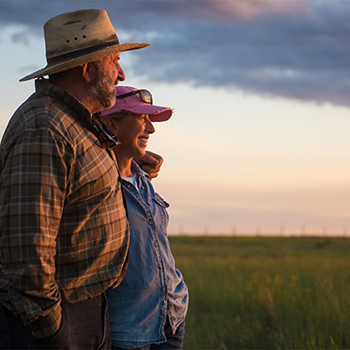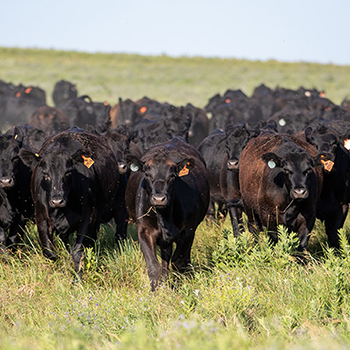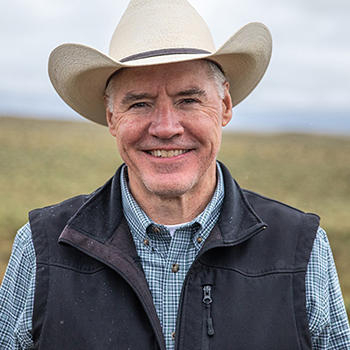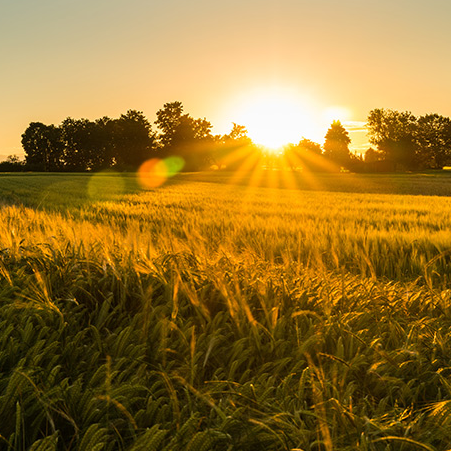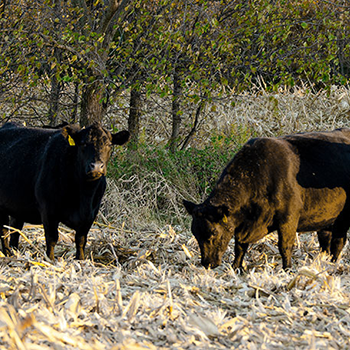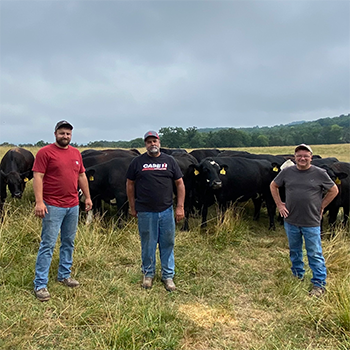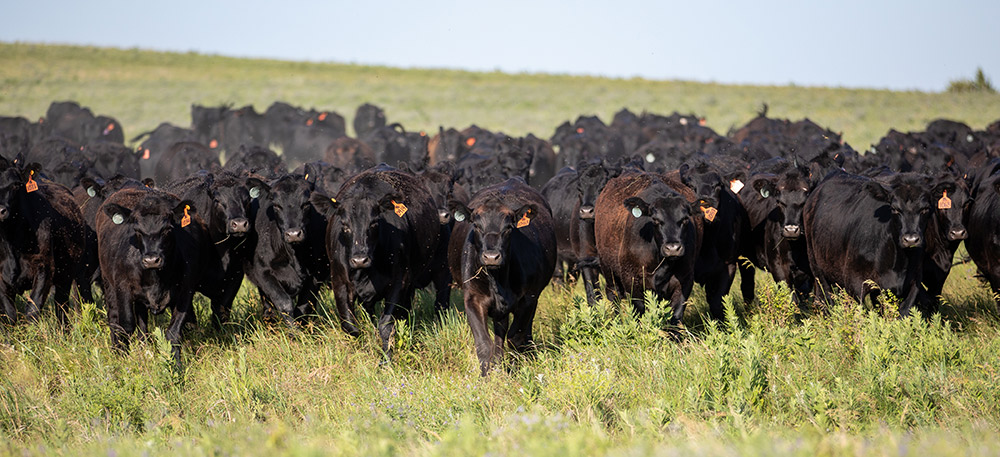
Family’s Forward Thinking Earns 2022 Progressive Partner Award
Detailed recordkeeping and selective genetic decision-making set this ranch apart.
Progress. For many the word is one that often feels intangible, hard to grasp or clearly define.
“Progress means that we are measuring improvement, coming up with a benchmark and knowing where we are today and where we want to go — not always making change, but always moving forward,” says Debbie Lyons-Blythe.
Adapting Angus cattle to perform better in tandem with the land and create a better end product is a labor of love 33 years in the making for the Blythe family. Every year they’ve improved — one breeding decision, management change, farm tour and conversation at a time.
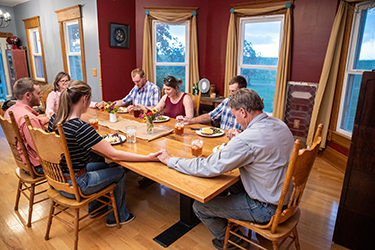
Succession plans are frequent dinner conversation for the Blythes. From grazing plans to who’s on calving duty, all topics have table time. |
“Cattle producers and consumers are all vitally important to the progress of our environment, animal welfare and making sure our businesses are profitable,” Debbie says.
Working toward a better beef business for themselves and the industry earned Blythe Family Farms the 2022 Certified Angus Beef (CAB) Progressive Partner Award.
Thinking ahead
Succession planning isn’t traditional dinner table conversation for most parents and their 20-something children and spouses. It is a frequent topic at a Blythe Sunday dinner.
Duane and Debbie may have many more able years ahead, but they’re already transitioning the farm to their five children.
“Working together, we’ve helped them and created an opportunity for them to learn the best practices from us,” Duane shares. “They’re going to find ways to build a better fence down the road, but they’re not going to make the same mistakes I made.”
The transition kit includes digital photos of pastures and plants, and notes on weather and dates. Debbie says it’s easy to reference management when questions arise about when to move cattle or burn a pasture.
This recordkeeping practice and forward-thinking model helps find ways to make the farm better.
“Progress is difficult to define without the ability to compare to a baseline,” Debbie says. “We have to be able to utilize this land in such a way that it will raise more food. We have to follow best-management practices and make sure we are doing a better job with what we have.”
Developing females
Doing so led to 175 registered Angus cows, 225 commercial females and a 375-head heifer-development program.
With a rich, native-grass resource, they decided 17 years ago that their time, skills and resources would be best spent in a commercial heifer program.
“We typically purchase heifers from families with cattle that have genetics we know,” Debbie says. “I prefer weaned and preconditioned with two shots and bunk-broke, but we’re willing to do the work. The longer we own them, the better those heifers settle to AI (artificial insemination).”
After being bred by AI once to a proven sire, heifers go on native grass with Blythe Angus bulls for 60 days for a tight calving interval starting Feb. 1. Debbie uses an expected progeny difference (EPD) benchmarking system to find ideal matings. Birth weight, weaning weight and marbling are priorities.
“We rely heavily on genomics when we’re selecting bulls,” she explains. “I believe strongly in carcass EPDs, especially marbling. If the hot, new bull doesn’t have a good marbling score, I won’t use him. I just feel like it’s my responsibility to be able to create good beef.”
Bull customers rely on her decisions, too.
Many have commercial herds and retain ownership of their calves, but they leave the EPDs to Debbie. Making sure they meet both cattle-customer and beef-consumer demands, the Blythes often retain ownership on their calves at Tiffany Cattle Co.
A pen sold in 2021 graded 97% Choice or Prime, with 90% making CAB or Prime. It’s more data pointing to progress.
Consumer connection
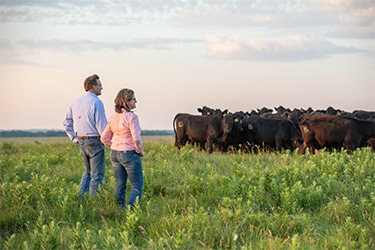
Starting a commercial heifer-development program 17 years ago came down to their proximity — they’re in a great location with rich, native-grass resources, skills, and customers. It’s now something that sets them apart and diversifies the business. |
The connection to the plate doesn’t stop there. The Blythes are constantly building bridges for people who want to know who raised their food. The modern cattle business is only sustainable with demand for high-quality beef raised on productive land. It is imperative that food influencers and customers alike understand those important aspects.
Food bloggers, chefs, foodservice salespeople and retailers have all had their first ranch experience at Blythe Family Farms. Whether it’s opening the gate or giving time to industry endeavors, the beef industry can often count on the Blythes to share their time, talents and treasures. Most recently, Debbie was elected chairman for the U.S. Roundtable for Sustainable Beef (USRSB).“Sustainability is taking care of the land, animals, people and making money,” she says. “My involvement in the USRSB is part of what will make it possible for my kids to continue to farm and ranch.”
Progress with tools, data, continuing education and a willingness to have the hard conversations over the dinner table or in the board room make their legacy a defining one that will only get better with time.
Editor’s note: Kylee Kohls Sellnow is a communications manager for Certified Angus Beef. Photos courtesy CAB.
